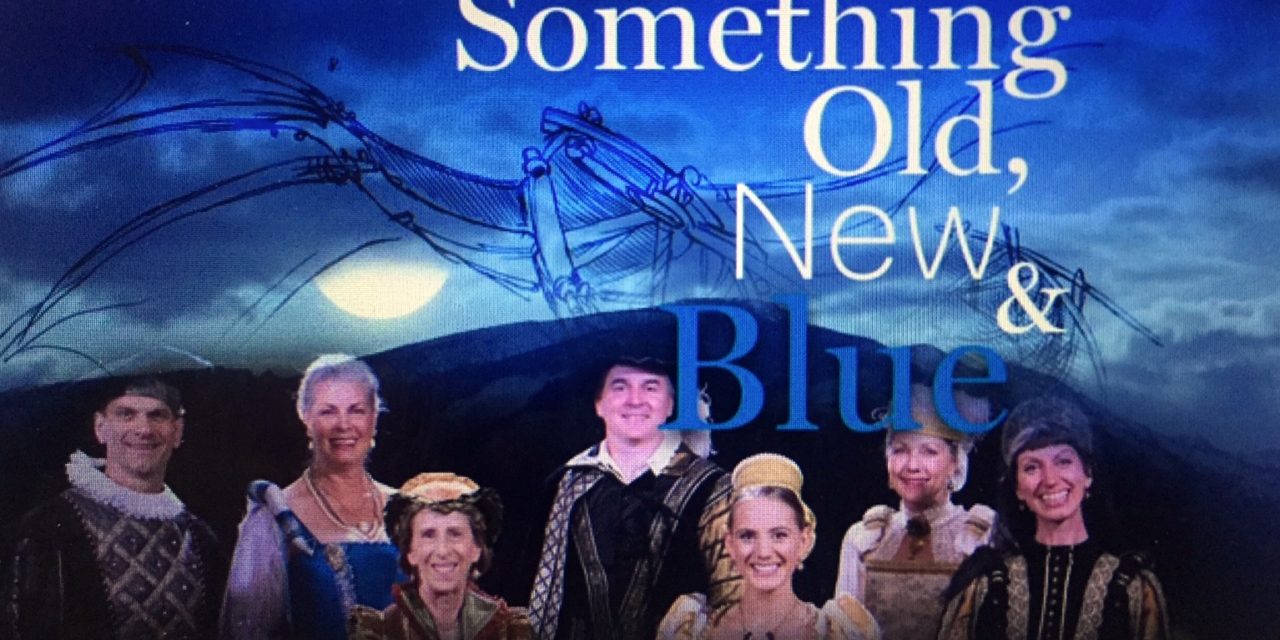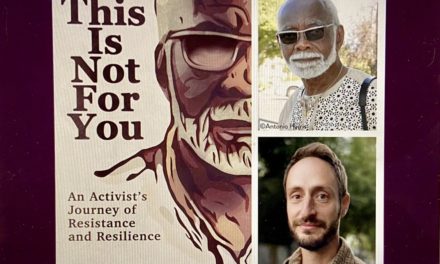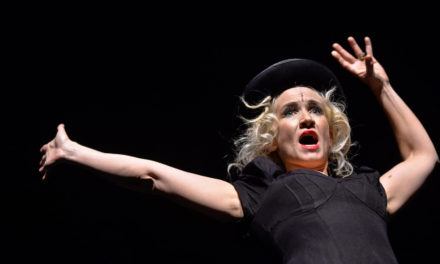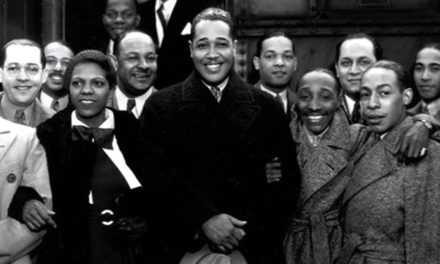By Carolyn Bergquist
While “Something Old, Something New & Blue ” was the title and principle of organization for the Eugene Vocal Arts’ delightful performance on April 6, the secondary theme of flight resonated more strongly for me.
The concert offered an array of ensemble sizes, music from a wide range of periods and styles, and a happy, chatty ease in Diane Retallack’s narration of the moves from one piece to the next. The singers were in good voice — what a bass section! — and their precision with text and texture of sound was impressive far more often than not.
Much of the music was sung without accompaniment, but the joint forces of Camilla Carter and Hung-Yun Chu playing an intricate piano four-hand accompaniment for William Averrit’s “The Dream Keeper” in the second half was a welcome variation to the evening’s program.
The first half of Renaissance madrigals and chansons, sung by the group in period costumes, celebrated music and the conventions of love, along with exhortations to women that they should follow suit with the natural world’s burgeoning flowers and birds’ songs of procreation and sex. All told, the madrigals extolled music, female beauty, the pleasures of man’s love when spring’s beauty blossoms, the pains of man’s love when his prospects don’t look good, the playfulness of bird songs erupting from all sections of the chorus, and the virtues of the virgin queen, Queen Elizabeth I.
The theme of marriage invoked by “something old, something new, something borrowed, and something blue” didn’t make an appearance in any of the pieces but instead served to create a path through the program. In fact, the theme of flight from difficulty, the yearning desire for love, self, and a legitimate place in the world that carried through the whole evening’s music all run counter to the notions of the social and interpersonal order we sometimes equate with marriage. This was a program of restless music and poetry, not ready to settle.
Eric Whitacre’s “Leonardo Dreams of His Flying Machine” opened the second half. The mix of quotations from Leonardo da Vinci’s own journals about flight and original poetry by Charles Anthony Silvestri whirled the earthbound inventor toward the air through textured interplay between sections of the chorus.
The first half of the concert, particularly Janequin’s “Song of the Birds,” had prepared our ears for this dramatization of the male imagination at work. The male lover’s imagination of being subject to the sometimes cruel mistress in the Petrarchan tradition had infused the first half of the concert. Here, in Whitacre’s piece, a 21st-century depiction of the Renaissance imagination ended in a literal flight from earth, as the singers all turned as if to watch the machine take wing.
The only female in the first half of the concert with real power in the conventions of love talk is Queen Elizabeth I, whose praises were sung in Thomas Weelkes’ madrigal “As Vesta Was.” Elizabeth I is said to have deployed these love conventions of the court with political cunning, while the tradition did less to serve the true interests of women without such power.
Further into the second half, William Averitt’s and Dwight Bigler’s settings of Langston Hughes’s poetry brought powerful words about the marginalization of black voices and dreams to the Beall Hall stage, and the artists performed them with feeling and grace.
However, the settings’ interpretations of Hughes’s poems and the discussion of the pieces did not do more than gesture toward that lived context as it extends to this day. Yes, the 50-year anniversary of Martin Luther King’s assassination is an important cultural moment to us all. And 50 years later, it is imperative to acknowledge how much more soul-searching and action is still required to realize equality for those for whom he advocated.
There is great pleasure to be had in the music of other times and less-familiar worlds. How wonderful to encounter both the Harlem Renaissance and Renaissance Europe in Beall Concert Hall. We can each bring our own hurts and loves and joys to the words, pleasure our ears with the sounds, and feel enriched.
In doing so, we also must appreciate the distance the poetry traverses and what is left behind when we borrow it for our own artistic uses. We don’t need to universalize. Too often that term means that the unfamiliar speaks to us, and we close down the fullness of meanings and realities that imbue poetry and music from other times and places. Instead, by acknowledging where our own ears and hearts are situated and thus allowing the music and words to live more expansively, we can do a great deal of good.
The Eugene Vocal Arts performance traversed these worlds and brought them to Eugene in a lovely evening of things old and new. Borrowing them for the evening chased many blues away on a chilly April evening.








